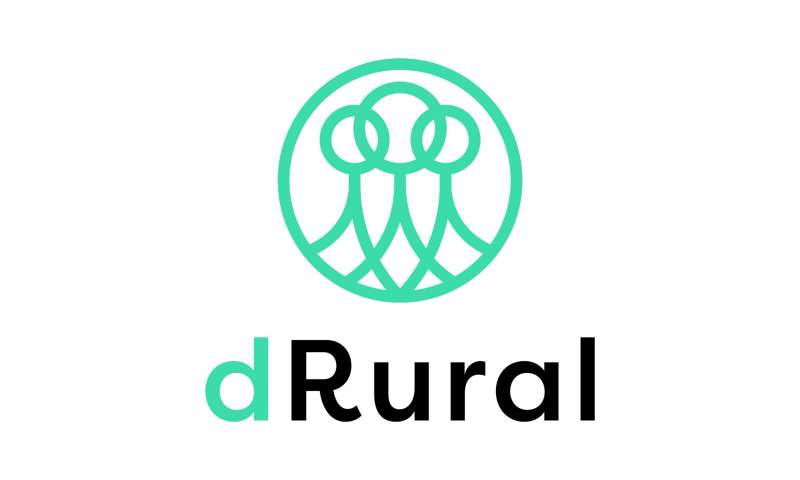Being ethical to be revolutionary: the agriculture challenge in the AI era

From yield prediction to resource optimisation, artificial intelligence is revolutionising farming practices. Yet, in the shadow of financial and environmental benefits, some unseen concerns might restrain its potential: agriculture at the crossroads of increased productivity and power concentration
By the start of 2023, there were some 200 AI-based agricultural start-ups in the US alone, and the global market for their solutions is expected to almost triple by 2028. Numbers speak for themselves, and experts are unanimous: with the global population set to reach 10 billion by 2050, the digitalisation of agriculture can contribute significantly to both feeding the world and producing more sustainably. However, cutting farming costs and environmental footprint is only the tip of the iceberg: regions such as the Croatian Dubrovnik-Neretva County are also betting on them to boost their attractiveness and counter depopulation. Yield prediction, farmland value assessment, and revenue estimation are among the benefits promised by some applications tailored for local farmers within dRural, an EU-funded project aimed at reviving European rural areas. "Technology is the way to go. If we miss this opportunity, we'll be stuck in the past," acknowledge its local managers. Yet, as pointed out by the recent EU study "Artificial intelligence in the agri-food sector—Applications, risks, and impacts, we shouldn't overlook concerns like the societal responsibility of "leaving no one behind", and the risk of concentrating power in the hands of large corporations. Josse De Baerdemaeker, emeritus professor from the Belgian University of Leuven, is among its authors.
What will agriculture look like in the artificial intelligence era?
Agriculture will be transformed for sure. Artificial intelligence combined with other technological tools like robotics will probably bring more efficiency. This will allow us to tailor crop management, like fertilizer or pest and disease control, according to the large variability of needs of the fields, and to achieve other kinds of optimizations that would otherwise be beyond our eyes.
Yet it's impossible, when thinking of artificial intelligence, not to fear futuristic scenarios where machines will replace humans...
Farmers will not disappear. They will still be in the fields but probably working differently: spending more time on their computer screen to interpret images and signals about what's happening on their land. Artificial intelligence can for instance help farmers plan harvests and optimise their production; with it they can select the most suitable varieties and better adjust quantities and timelines of inputs like fertilizers or mechanical field operations.
What role will be left for farmers, then?
We should train farmers to work with and not for artificial intelligence, to take advantage of it instead of just following its prescriptions blindly. It shouldn't be only about them sending a picture of their crops to some central crop advisory service, and waiting to receive back instructions on how to set up their machinery. Who will be responsible, for instance, if something goes wrong and the crops get damaged?
Transparency and comprehension will be crucial in avoiding such situations. How can we be sure that users of artificial intelligence understand and properly question its recommendations?
These algorithms rely on a huge amount of data and can turn into black boxes, providing solutions that farmers will only have to accept and execute. The question is: will they have to follow the algorithm blindly, or will they able to follow its reasoning? Be it in terms of crop treatment, crop selection, or whatever, if the algorithm could explain its suggestions, farmers would be aware of the consequences of their actions and know what would happen or not. And this would also give them more confidence in the use of AI-agronomic services.
Such solutions require significant investments, which might not be affordable for small farmers. Will the AI revolution be for all?
So far, European agriculture has been largely characterised by a large number of small farms, but its structure may be affected as well. It will all depend on who can afford the technology. Farmers' organisations, national governments, and EU policies must make sure that there is a coordinated effort to leave no one behind. In the study that we worked on for the European Parliament, we stressed for instance that much more should be done to educate and train farmers. Avoiding the digital divide would not only make the use of this technology more efficient but also empower small farmers with equal opportunities that otherwise may only be accessible to big corporations.
Yet, as data is power, this will affect the balance of power…
One more thing we should pay attention to is how artificial intelligence will be used by intermediaries, such as distributors and retailers. What is at stake is preserving the freedom of choice of both consumers and farmers and making sure the latter will keep operating independently. We should avoid coming to a point where farmers become just employees of retailers. Will they end up governing the way farmers produce and forcing them to produce what they know the consumers want? And does it mean that one day we will only have one variety of apples or grain, at the expense of biodiversity?
Technology is progressing so rapidly that governments and society seem to be a step behind. Is artificial intelligence evolving too fast?
As for any new product, lots of people are trying to make a business out of artificial intelligence in agriculture. Competition is growing, and things need to be done rapidly, but we might wonder if they are going too fast and if all concerns are being taken into account. Governments or farmers' organisations can ask for transparency on the models that are used and for them to be accompanied by understandable documentation for users. As for drugs, AI-based solutions must be provided together with information clearly explaining what they are for, but also what to watch out for.
Contacts:
Coordinator: Myriam Martín, TICbiomed, myriam.martin@ticbiomed.net
Communication Officer: Federica Fusco, ICONS, federica.fusco@icons.it
Project website: Homepage—dRural
Twitter: @drural_eu
Linkedin: dRural
Provided by iCube Programme